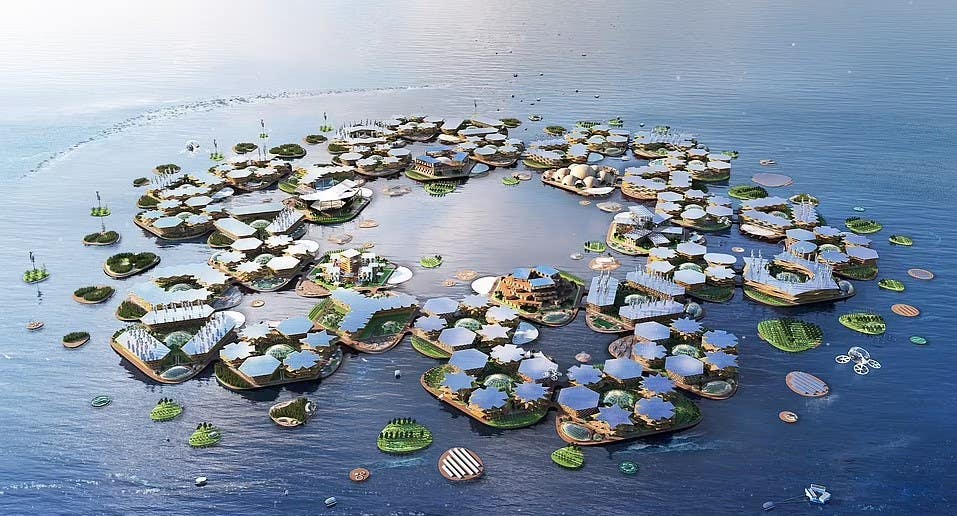South Korea plans to build world’s first floating city by 2025
A floating city has been proposed for the seas off Busan in South Korea to pioneer a new mode of living amid climate-related sea-level rises

[Nov 25, 2021: David Rogers]
Vojin Kusic poses for a photo in front of his rotating house in Srbac, Bosnia and Herzegovina. (CREDIT: REUTERS/Dado Ruvic)
A UN-backed project to develop a floating city has been proposed for the seas off Busan in South Korea to pioneer a new mode of living amid climate-related sea-level rises.
Last week, the city government signed an agreement with Oceanix, a company founded by Danish architect Bjarke Ingels Group, and UN-Habitat.
The plan is to build a city made from hexagonal modules that would be stable enough to resist a category five hurricane.
The aim is to have the first platforms in the water by 2025, reports Business Insider. Although the size of the city’s first iteration has not been determined, the cost is expected to be in the region of $200m.
According to media reports, the plan is to assemble the city over 75ha with an initial population of 10,000. The hexagons would be grouped around a central harbour and made up of “villages” of up to 1,650 residents.



Itai Madamombe, a cofounder of Oceanix told Insider that Busan was the best place to build the prototype city because it was home to one the world’s busiest ports, so local builders and engineers had experience of building along the water.
Related Stories:
She said the idea would be “useful to all coastal cities around the world, and all coastal communities who are facing the challenge of sea-level rise”. Oceanix is in talks with at least 10 governments about building more floating cities, she added.
In Busan, her team will collaborate with local designers to tailor the prototype to the local environment. Oceanix plans to unveil the results of those efforts at a second UN roundtable in April 2022. After that, the team would start engineering the platforms and working its way through the approval process.
When Bjarke Ingels Group proposed the idea in 2019, it outlined a plan to make the city sustainable using floating reefs to grow shellfish and kelp, fresh water systems, aquaponic agriculture and rooftop solar panels (see further reading).
The floating city concept was discussed at a UN roundtable discussion in April 2019, attended by UN Deputy Secretary-General Amina Mohammed, Marc Collins Chen, the chief executive of Oceanix and Nicholas Makris, a professor at the MIT Centre for Ocean Engineering.
At that meeting Mohammed commented that floating cities could be part of an “arsenal of tools” for adapting population centres to climate change. She said: “Because of climate change, cities are increasingly at risk of flooding. In Bangkok, the ground on which some parts of the city stands is sinking by around two centimetres every year, according to some estimates, while sea levels in the Gulf of Thailand are rising.”
For more international good news stories check out our Global Good section at The Brighter Side of News.
Like these kind of feel good stories? Get the Brighter Side of News' newsletter.
Tags: #Global_Good_News, #New_Innovations, #Materials, #City, #Eco_Friendly, #Floating, #Climate_Change, #The_Brighter_Side_of_News
Joseph Shavit
Head Science News Writer | Communicating Innovation & Discovery
Based in Los Angeles, Joseph Shavit is an accomplished science journalist, head science news writer and co-founder at The Brighter Side of News, where he translates cutting-edge discoveries into compelling stories for a broad audience. With a strong background spanning science, business, product management, media leadership, and entrepreneurship, Joseph brings a unique perspective to science communication. His expertise allows him to uncover the intersection of technological advancements and market potential, shedding light on how groundbreaking research evolves into transformative products and industries.



